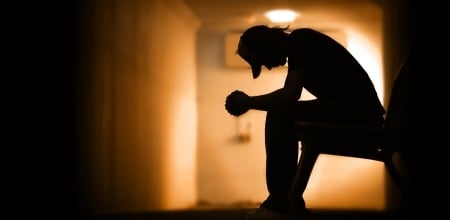
Now, from what I just told you, you should be able to deduce two things rather quickly. 1) My first undergraduate degree, indeed, was in English (yes, I am a book geek) and 2) in his themes of social justice, resurrection and self-sacrifice, Dickens is clearly flirting with topics near and dear to the heart of the New Testament.
That is where the Spirit of God drives us, toward lives focused on social justice, metaphorical resurrections and, when even necessary, self-sacrifice. But increasingly, that is not the case in many traditional churches in the U.S.
Part of our problem is that we have attempted to domesticate the Spirit of God. The very ruah (breath of God). The wild winds that ignited the flames of creation as they whipped recklessly over the face of chaos – in the beginning; God’s essential nature described in Deuteronomy as a devouring fire; the radiant and elusive Spirit that gave the revelation of Jesus’ messiahship at his baptism; the Spirit Jesus himself would describe to Nicodemus as being mysterious and unpredictable like the wind; the winds that rushed into an upper room ripping the windows open, resting as a flame on the disciple’s shoulders, causing them to speak in tongues and be looked upon as if they were drunk; that Spirit scares us because we can’t control it. So, we have attempted to domesticate God’s Spirit – much like the common dog. We tried to tame it, teach it to curl up beside our hearths and be obedient. We want to quantify it, objectify it, demystify it – train it, contain it and constrain it. Like our children, we want it stop being so wild and uncontrollable. We want it to lose its propensity to form something new out of a world in which we feel comfortable.
The Spirit however is unruly. It is apt to doing a “new thing,” to bringing about a change on God’s people and on the world which God created. Should we really expect anything less out of the Spirit of God – not the God we created in our image, but the God that said, “behold, I am about to do a new thing,” the God who used chaos to form this world, the God who did the unthinkable and became human flesh, the God who overcame death itself…should we really expect the Spirit of that God to be docile, domesticated and dormant? In churches throughout the U.S., we seem to.
Churches throughout the U.S. must ask themselves, which Spirit do we follow? The one we, as a society, have created out of our own needs? The one that allows us to trust in ourselves? The one that plays nice and gives us warm fuzzies? Or are we ready to celebrate the Spirit of the biblical text? One who is willing to grapple with chaos. One that is unruly, unexpected, unconventional and unconcerned with what we want or how things have always been done. Which one do we truly celebrate?
The modern day story of the Church is the tale of two Spirits. Much like Dickens’ tale it is the story of social-justice, self-sacrifice and resurrection. Let us live into that story, our story, the story of the Children of God. Let us make room for the true Spirit of God to work as we walk in the footprint of Jesus, being willing to sacrifice our fear of the unknown in order to bring about change, willing to let our wants be sidelined for God’s justice knowing that they are step on a lifetime’s journey to God that will conclude one fine day as we rest in the arms of the one whose Spirit has brought us this far.
I’d like to conclude the way I started, with a quote from Dickens’ A Tale of Two Cities. And just as I started with the quote that opens his tale, I’ll conclude with the one that closes his book. I think they are both more than appropriate for our tale of to Spirits. As we choose what we are going to do, which Spirit we are willing to make room for, on our journey to our ultimate resting place with God, remember these words, “It is a far, far better thing that I do, than I have ever done; it is a far, far better rest that I go to, than I have ever known.”















